Across State Lines
I have little confidence in the ability (or willingness) of Internet companies to determine if a prospective purchaser is underage.

Select Page

As for all those advertisements we see online, about how pouches are tobacco-free and therefore a safe alternative to smoking or vaping -- I'm afraid that’s mostly just a sales pitch.
Posted by C. Scott McMillin | Nov 25, 2024 | Addiction | 0 |
Related to celebrity, nicotine
by C. Scott McMillin | Feb 16, 2026 | 0 |
I have little confidence in the ability (or willingness) of Internet companies to determine if a prospective purchaser is underage.

by C. Scott McMillin | Feb 12, 2026 | 0 |

by C. Scott McMillin | Feb 5, 2026 | 0 |

by C. Scott McMillin | Jan 22, 2026 | 0 |

by C. Scott McMillin | Jan 19, 2026 | 0 |
by C. Scott McMillin | Feb 12, 2026 | 0 |
It would be difficult for the defense to argue that this isn’t done intentionally, for the purpose of keeping patrons coming back for more. And more, and more.

by C. Scott McMillin | Feb 5, 2026 | 0 |

by C. Scott McMillin | Jan 22, 2026 | 0 |

by C. Scott McMillin | Dec 29, 2025 | 0 |

by C. Scott McMillin | Dec 25, 2025 | 0 |
by C. Scott McMillin | Dec 11, 2025 | 0 |
An increasing number of people rely on AI as their *primary resource for mental health concerns. That includes truly vulnerable populations, such as adolescents.

by C. Scott McMillin | Nov 20, 2025 | 0 |

by C. Scott McMillin | Nov 3, 2025 | 0 |

by C. Scott McMillin | Oct 20, 2025 | 0 |

by C. Scott McMillin | Oct 9, 2025 | 0 |
by C. Scott McMillin | Feb 16, 2026 | 0 |
I have little confidence in the ability (or willingness) of Internet companies to determine if a prospective purchaser is underage.

by C. Scott McMillin | Jan 19, 2026 | 0 |

by C. Scott McMillin | Dec 15, 2025 | 0 |

by C. Scott McMillin | Oct 16, 2025 | 0 |

by C. Scott McMillin | Aug 11, 2025 | 0 |
by C. Scott McMillin | Feb 23, 2026 | 0 |
More Americans now use marijuana daily than alcohol.

by C. Scott McMillin | Feb 9, 2026 | 0 |

by C. Scott McMillin | Feb 2, 2026 | 0 |

by C. Scott McMillin | Jan 26, 2026 | 0 |

by C. Scott McMillin | Jan 15, 2026 | 0 |
by C. Scott McMillin | Feb 2, 2026 | 0 |
Expansion of Medicaid has greatly improved things for those at the low end, but we seem to have greater difficulty coming up with a decent solution for the crazy stuff that can sometimes happen at the very top.

by C. Scott McMillin | Nov 17, 2025 | 0 |

by C. Scott McMillin | Nov 10, 2025 | 0 |

by C. Scott McMillin | May 8, 2025 | 0 |

by C. Scott McMillin | Apr 10, 2025 | 0 |
by C. Scott McMillin | Feb 23, 2026 | 0 |
More Americans now use marijuana daily than alcohol.

by C. Scott McMillin | Feb 9, 2026 | 0 |

by C. Scott McMillin | Jan 8, 2026 | 0 |
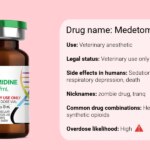
by C. Scott McMillin | Jan 5, 2026 | 0 |

by C. Scott McMillin | Dec 18, 2025 | 0 |
by C. Scott McMillin | Sep 30, 2024 | 0 |
Make it a continuing effort, using strategies based in evidence, and harnessing the power of human interaction-- instead of relying on a burst of anti-drug education, however intense.

by C. Scott McMillin | Nov 30, 2023 | 0 |

by C. Scott McMillin | Mar 18, 2021 | 0 |

by C. Scott McMillin | Mar 16, 2020 | 0 |

by C. Scott McMillin | Feb 27, 2020 | 0 |
by C. Scott McMillin | Jan 15, 2026 | 0 |
After all, they call this a "relapsing" disorder.

by C. Scott McMillin | Sep 25, 2025 | 1 |

by C. Scott McMillin | Sep 18, 2025 | 0 |

by C. Scott McMillin | Feb 6, 2025 | 0 |

by C. Scott McMillin | Jul 1, 2024 | 0 |
by C. Scott McMillin | Jan 26, 2026 | 0 |
Their appeal was based on the extreme need of the American people for programs that worked and deserved to be continued rather than sacrificed to the gods of the budget.

by C. Scott McMillin | Dec 1, 2025 | 0 |

by C. Scott McMillin | Jul 21, 2025 | 0 |

by C. Scott McMillin | Jul 3, 2025 | 0 |

by C. Scott McMillin | May 5, 2025 | 0 |
by C. Scott McMillin | Feb 19, 2026 | 0 |
Compulsive behaviors are generally thought to stem from anxiety, and that’s certainly common enough among the newly clean and sober.

by C. Scott McMillin | Dec 4, 2025 | 0 |

by C. Scott McMillin | Nov 6, 2025 | 0 |

by C. Scott McMillin | Oct 2, 2025 | 0 |

by C. Scott McMillin | Sep 29, 2025 | 0 |
by C. Scott McMillin | Feb 19, 2026 | 0 |
Compulsive behaviors are generally thought to stem from anxiety, and that’s certainly common enough among the newly clean and sober.
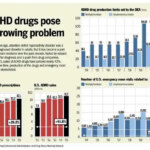
by C. Scott McMillin | Sep 1, 2025 | 0 |

by C. Scott McMillin | Aug 25, 2025 | 0 |

by C. Scott McMillin | Jul 7, 2025 | 0 |

by C. Scott McMillin | Jun 9, 2025 | 0 |
by C. Scott McMillin | Oct 2, 2025 | 0 |
Children raised in such families are more likely to be exposed to violence, to initiate their own substance use at an earlier age, and to have mental health problems in childhood.
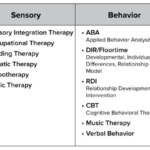
by C. Scott McMillin | Mar 13, 2025 | 0 |

by C. Scott McMillin | Oct 24, 2024 | 0 |

by C. Scott McMillin | Sep 26, 2024 | 0 |

by C. Scott McMillin | Jun 20, 2024 | 0 |
by C. Scott McMillin | Dec 4, 2025 | 0 |
...there are other folks out there like these— pretending to sobriety yet still secretly using, and hoping to avoid the sort of trouble that haunted them in the past.

by C. Scott McMillin | Nov 6, 2025 | 0 |

by C. Scott McMillin | Jul 17, 2025 | 0 |

by C. Scott McMillin | Aug 3, 2023 | 0 |

by C. Scott McMillin | Dec 22, 2022 | 0 |
by C. Scott McMillin | Sep 29, 2025 | 0 |
...with law enforcement agencies taking on vastly different roles, planning and practicing our response appears more important than in the past.

by C. Scott McMillin | Aug 18, 2025 | 0 |

by C. Scott McMillin | Jun 30, 2025 | 0 |

by C. Scott McMillin | Jun 12, 2025 | 0 |

by C. Scott McMillin | Jan 3, 2022 | 0 |
by C. Scott McMillin | Sep 4, 2025 | 0 |
...the author, who grew up in and around the region, chose to use its earnings to found Higher Ground, a home for recovering women.

by C. Scott McMillin | Mar 5, 2020 | 0 |
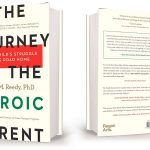
by Brad Reedy | Dec 10, 2018 | 0 |

by Jason Hyland | May 21, 2018 | 0 |
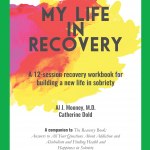
by Catherine Dold | Feb 23, 2017 | 0 |
by C. Scott McMillin | Sep 4, 2025 | 0 |
...the author, who grew up in and around the region, chose to use its earnings to found Higher Ground, a home for recovering women.

by C. Scott McMillin | Mar 5, 2020 | 0 |

by Brad Reedy | Dec 10, 2018 | 0 |

by Jason Hyland | May 21, 2018 | 0 |

by Catherine Dold | Feb 23, 2017 | 0 |
by C. Scott McMillin | Nov 14, 2016 | 1 |
It certainly makes sense that if you suffer from a major mental illness, you should stay away from pot.

by C. Scott McMillin | Jul 14, 2014 | 0 |

by C. Scott McMillin | Jul 7, 2014 | 0 |


by C. Scott McMillin | Jun 18, 2013 | 4 |
People have abused opiates for 5,000 years. As much as medicine depends on them, they've always created problems for a percentage of users.